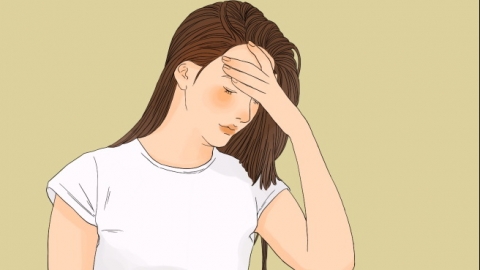Why does staring at a phone worsen motion sickness symptoms?
Generally, staring at a mobile phone can worsen symptoms of motion sickness, primarily due to factors such as visual signal disturbance, vestibular system conflict, eye muscle fatigue, excessive concentration, and screen light stimulation. The core cause of motion sickness is inconsistent motion signals sent by different sensory systems in the body, and using a phone intensifies this signal mismatch. A detailed analysis is as follows:
1. Visual Signal Disturbance
The mobile phone screen presents a fixed, close-up image. When focusing on it, the visual system perceives "stillness," while the vestibular system senses "motion" due to the boat's movement. This conflict between signals increases confusion in the brain, exacerbating symptoms such as nausea and dizziness. To reduce motion sickness, put down your phone and look at distant, stationary objects to help align visual and vestibular signals.

2. Vestibular System Conflict
During vessel movement, the inner ear’s vestibular organs continuously detect changes in position and send motion signals to the brain. However, focusing on a phone sends a "no motion" message through vision, creating contradictory input that may trigger vestibular dysfunction and amplify motion sickness. Closing your eyes to reduce visual interference or slowly adjusting body posture to match the rhythm of the boat's sway can help alleviate symptoms.
3. Eye Muscle Fatigue
When staring at a phone screen, eye muscles must constantly adjust focus to maintain clear vision. The rocking motion of the boat increases the strain on these muscles, leading to eye fatigue. This fatigue signal, when transmitted to the brain, combines with existing discomfort from motion sickness, increasing overall distress. Avoid prolonged phone use during travel; instead, close your eyes periodically every few minutes to relax the eye muscles.
4. Excessive Concentration
When intensely focused on a phone, the brain allocates more attention to screen content, reducing its capacity to regulate balance. If the boat suddenly rocks, the brain struggles to coordinate sensory inputs promptly, potentially worsening motion sickness symptoms. Try shifting attention elsewhere—such as chatting with others or leaning back comfortably—to avoid over-focusing on the device.
5. Screen Light Stimulation
The brightness and color temperature of a phone screen often differ from ambient lighting. Especially in dimly lit cabins, the intense screen light can stimulate the retina and cause eye discomfort. This irritation interacts with dizziness and nausea caused by motion sickness, making it harder for the body to adapt to the moving environment. Adjust the screen brightness to match the surrounding light levels to minimize visual strain.
In daily life, avoid eating too much or traveling on an empty stomach before boarding; reduce intake of greasy foods. Choose seats near the middle of the vessel, where motion is generally less pronounced. Prepare remedies like ginger slices or mint candies before symptoms occur. For severe cases, medications such as dimenhydrinate tablets, diphenhydramine hydrochloride tablets, or scopolamine patches may be used under medical guidance.




